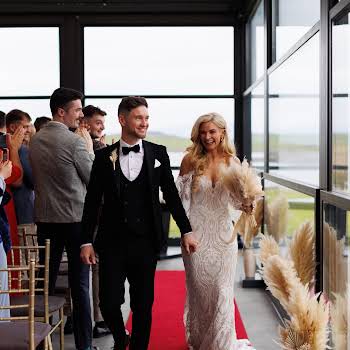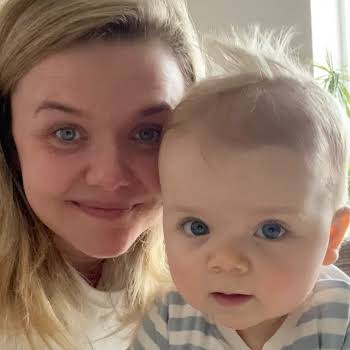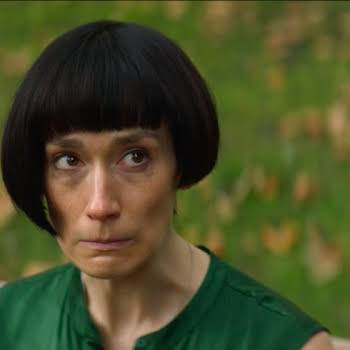
By Erin Lindsay
21st Feb 2018
21st Feb 2018
We’re led to believe a certain stereotype of autism. A person with autism is someone who is quiet, socially awkward and doesn’t interact well with others. Someone who has a genius streak when it comes to numbers and science, and doesn’t deal with anything creative or emotional.
When I met my friend Sinéad in college, she was the complete opposite to all of those things. We were both studying journalism, which she threw herself into completely. She worked on the college newspaper and multiple other publications over our four years at DIT. She was really into sport and quickly became the person to ask if you needed a sports event covered. She was also one of the most outgoing people I’ve ever met – she can chat for Ireland and is always in a lovely mood. Everyone in our course and beyond, including both students and lecturers, were enamoured of her.
And so, halfway through our degree, when I found out that Sinéad had Aspergers, I was shocked, to say the least. “But… you’re so outgoing?” I thought. “You’re never awkward around people!”
It really showed how ignorant we can be about autism and what it really means to have something like Aspergers. I couldn’t believe that because Sinéad wasn’t what I had previously imagined someone with Aspergers to be like, that she could possibly have it.
Sinéad was diagnosed at what some might consider a late age; she was 16. “I had always been a bit of an ‘odd’ child; some would describe me as having been precocious, quite independent and a bit of a loner, really into her own things,” she said. I found it really interesting to hear how her Aspergers manifested in her personality when she was younger. “I struggled with social cues, even as a child, and always struggled to make friends. I was different in that I don’t have a similar sense of humour to most people, particularly that I don’t understand sarcasm. I have an excellent eye for detail, small things like dates, phone numbers etc. and would always have remembered them very easily.
I also have quite a bit of a temper and have always struggled with containing my emotions. To put it in the nicest manner, I wear my heart on my sleeve when it comes to all my emotions, be it anger, happiness, sadness or love. I am brutally honest, and tend to blurt things out of the blue when it may not always be the most polite or ‘proper’ thing to do; if nothing else, at least people always know where they stand with me!”
She sounds, to me, similar to many children, who might not have been diagnosed with Aspergers. Like I said, it was never obvious to us. Was it a shock to find out the truth? “Yes, I was hugely shocked and very upset and scared, to be honest! Autism wasn’t as much a part of the national conversation when I was a teenager and I didn’t really know what it was about.”
So Sinéad did what every freaked out teenager would do – she Googled it. “Worst decision ever!” she said. “I remember reading that it was a “disability” and I naturally just thought that it was a “disability” that I would be afflicted with for the rest of my life. I always knew that I was different but never thought it was so serious that it was a “disability”. I remember being afraid that I’d never have friends, relationships, a job, all those things.”
I can’t imagine how scary it must have been to think that a condition would threaten the life you had planned for yourself. Sinéad tells me that she didn’t really come to terms with the diagnosis until she had moved out and went to college. “The diagnosis gave me an explanation if nothing else. Finally, things started making a bit more sense as to why I am the way that I am. Like I said, I didn’t really come to terms with it for a couple years but once I did, I realised that the diagnosis was one of the best things to happen to me. It enabled me to access so many more resources, have more supports and research more about myself.”
Even though it took her a while to come to terms with it, Sinéad now sees her Aspergers in a much more positive light. “I have a lot of abilities from my Aspergers that ‘neurotypical’ people wouldn’t have,” she says. “Everyone in the world has strengths and weaknesses, so in reality, it’s not that different to so many people.”
Unfortunately, this doesn’t stop some people letting their prejudices cloud their perception of Sinéad. I remembered that she hadn’t told us in college until we were all pretty comfortable around each other. But it’s not that simple for everyone that she meets. “The most frustrating thing people say to me is “You don’t look like you have autism” or “You’d never know, it must not be that bad, my friend/cousin/niece etc is much worse than you”. Nobody ‘looks’ autistic. There’s an old saying which is “If you’ve met one person with autism, you’ve only met one person with autism” and it is so true!”
Sinéad now works at a not-for-profit that assists adults with autism in gaining employment, through initiatives like C.V and interview coaching and matching them with suitable companies. Although she’s incredibly patient with those who don’t know a lot about autism, she wishes that people were more educated about how the spectrum is so varied. “It is a very personal condition and no two people are the same. I also would like people to stop thinking that they need to handle autistic people like we are made of glass. We are very sociable, caring, empathetic, loving, capable people and are realistically not much different to most people in society and deserve to be treated as such.”
Sinéad now has everything that she was afraid she might lose to Aspergers when she was younger. “Most of the original fears that I had when I was first diagnosed, have been dispelled in terms of the fact that I now have a good group of some very understanding, real friends, a loving relationship and a job which I love doing, all while having a very supportive family as well.”























